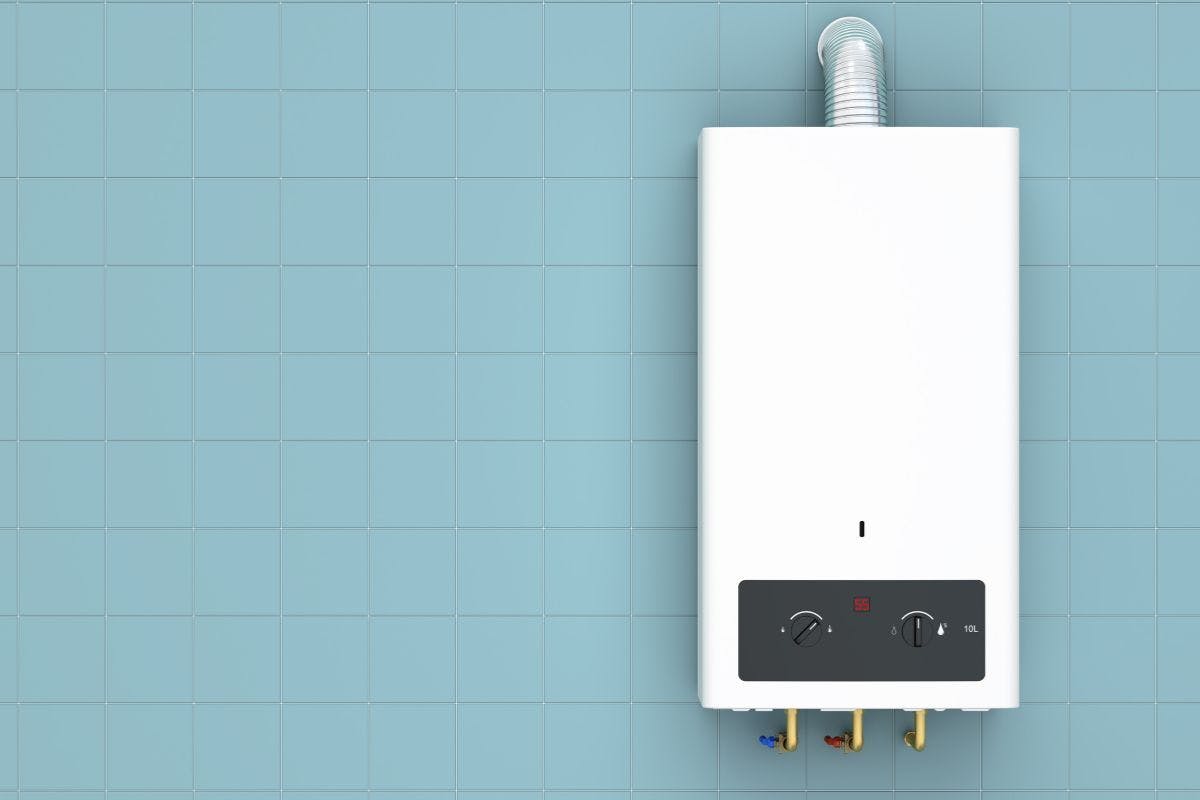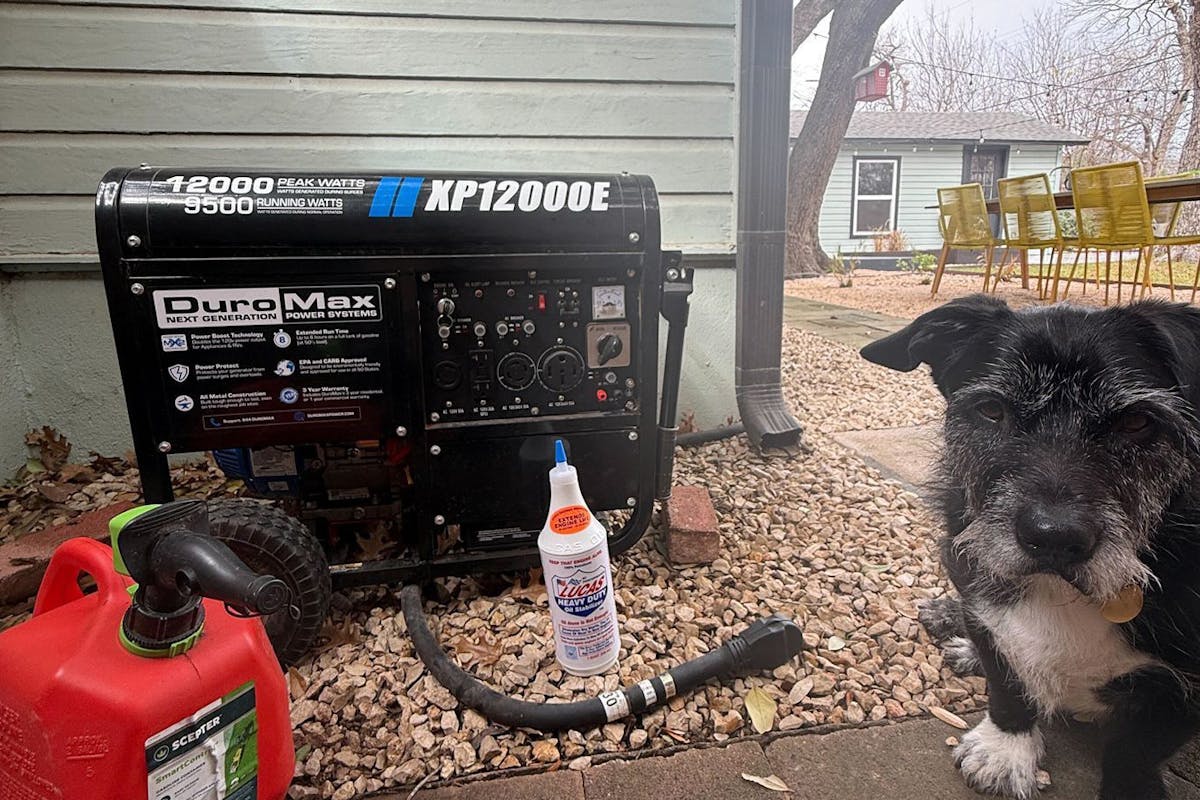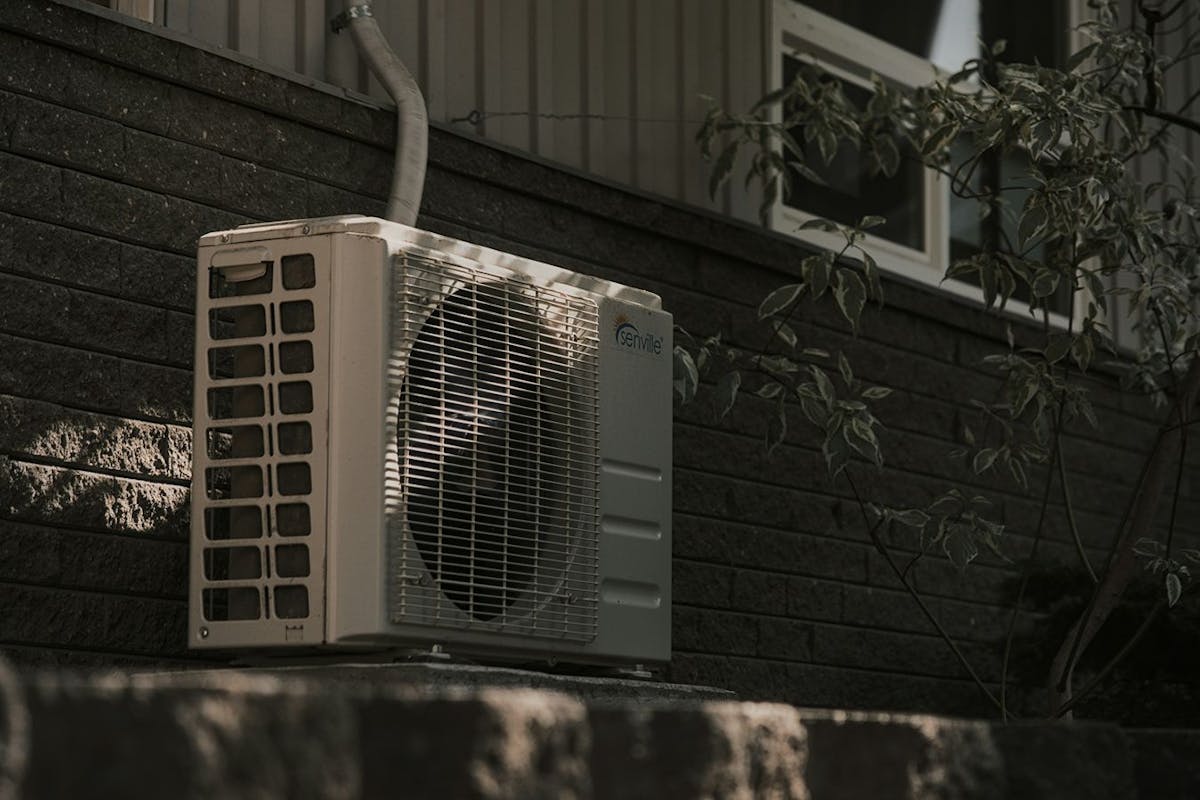Tankless Water Heaters: Pros, Cons, and Costs
Last edited
Author
Andrew Giermak
Solar and Electrification Writer and Editor
Editor
Andrew Blok
Electrification and Solar Writer and Editor

German company Stiebel-Eltron invented the first electric tankless water heater in 1929. As far as being a real choice for many homeowners, electric tankless water heaters gained popularity in the US beginning in the 1990s. Now, tankless water heaters are projected to top $1 billion in sales revenue in 2028.
When, though, is a tankless water heater the right choice for your home? Switching to tankless or on-demand water heating could give you many years — 20 or more — of savings, continuous hot water, and dependability. Here’s more on what a tankless water heater is and when it’s likely right for you.
See how much you can save with home energy changes
How does a tankless water heater work?
Tankless water heaters can run on gas or electricity. They heat water on demand and do not keep water in a tank 24-7. There’s no energy use for storage or standby energy when you don’t need hot water. Depending on your home’s hot water usage, electric tankless water heaters are typically less expensive to operate than conventional tank water heaters because they work on demand.
Electric tankless water heaters are more energy efficient than gas-powered tankless water heaters. Electric tankless water heaters can be more than 98% efficient while high efficiency gas models peak just below that. Both electric and gas tankless water heaters have usual lifespans of 20 years or more.
Tankless water heater vs. standard tank water heater
Tankless water heaters are more energy efficient, heat water on demand, take up less space, generally last longer, but cost more upfront compared to conventional tank water heaters. Which option is better for your home depends on your individual needs, such as your routine, your hot water usage, and your budget. Deciding to electrify your home or install home solar panels may factor in, too.
| Tankless | Conventional | |
|---|---|---|
| Cost | Higher purchase and installation cost, lower energy costs over time | Lower upfront purchase and installation cost |
| Energy efficiency | More energy efficient For homes using less than 41 gallons of hot water per day, tankless heaters can be 24-34% more energy efficient according to the US Department of Energy. | Uses more energy to keep stored water at a set temperature |
| Space | Smaller and takes up less space, often installed on a wall | Larger, often needs to go in a garage or basement |
| Flow rate | Hot water on demand, but may not have a flow rate to supply multiple fixtures or appliances at the same time. You might need multiple tankless water heaters in a home. | Larger, can provide higher volume, may be better for homes with multiple fixtures or appliances needing hot water at the same time |
| Lifespan | 20 or more years | 10-15 years |
Tankless water heater pros and cons
Here are the pros and cons when considering a tankless water heater.
Pros of a tankless water heater
- Continuous hot water: Heats water on demand when you have a fixture or appliance on. There’s no waiting for a tank to refill.
- Energy efficiency: You save energy and money by heating water only when you need hot water, with no standby energy usage.
- Lifespan: A tankless water heater has a longer lifespan, generally 20 years or longer.
- Space: Takes up little space, it is often installed mounted on a wall.
- Great with solar power: Can run on free, renewable, independent power from home solar panels.
Cons with a tankless water heater
- Higher upfront cost: A tankless water heater, plus installation, can cost more than a standard water heater.
- Flow rate: It may not have the flow rate to supply a large home or multiple fixtures/appliances simultaneously.
- Maintenance: May need descaling once or twice a year like other water heaters, especially if you have hard water.
- Power outages: If your electricity goes out, you won’t have hot water, unless you have backup power.
See how much you can save with home energy changes
Tankless water heater repair and maintenance
Tankless water heaters typically have only a few regular maintenance tasks, and some of them are easy DIY jobs. Any work involving the electrical components or internal parts, such as the burner or pressure release valve, should be done by a professional.
About once a year, a tankless water heater needs to be descaled or flushed to avoid mineral buildup. There are flushing kits and online instructions that make this possible for homeowners to do. Cleaning the water heater’s water filter is another simple maintenance job.
A professional technician should do any work involving internal or electrical parts. A tankless water heater may need regular inspections of its heat exchanger, burner, and pressure valve. Doing this work yourself, or neglecting regular service, can be dangerous and void a warranty or service plan.
How much does a tankless water heater cost?
The purchase, installation, operating, and maintenance costs of a tankless water heater can vary by location, home specifications, water usage, energy source and rates, installation needs, and service and maintenance over time.
The cost of a new tankless water heater ranges from $500-$2,600. Installation can run from $600-$2,500, according to multiple online consumer sources. Installation can be higher if you’re installing multiple water heaters for a large property or if extra electrical work, such as a new electrical panel, is needed. Permitting ranges from $50-$200 with a new system. Depending on your usage and gas or electric rates, or if you’ve gone solar, the power to run a tankless water heater ranges from $0-$40 a month. Maintenance ranges from $20-$50 for a DIY descaling kit once or twice a year to about $150-$350 for professional maintenance. These estimates are from a survey of online industry and consumer sources.
If you are looking for more ways to use less energy and save money at home, explore Palmetto’s Savings Maximizer or download the Palmetto App. On the app you can see your energy usage, find ways to save money, and earn discounts on energy-saving products.
See what home electrification can do for you:
Frequently asked questions
Are tankless water heaters better than other options?
Tankless water heaters can be the better home water heating option in many cases. A tankless water heater is likely to give you long-term energy savings, provide instant hot water, take up less space, last longer, and work well with home solar, if the water heater is electric.
Are tankless water heaters cheaper to operate than tank water heaters?
In most cases, a tankless water heater is less expensive to operate. According to the Department of Energy, tankless heaters are 24-34% more energy efficient in homes using less than 41 gallons of hot water a day. A home with high hot water demand, or frequent simultaneous hot water use, may be better served by a tank water heater or two or more tankless water heaters.


